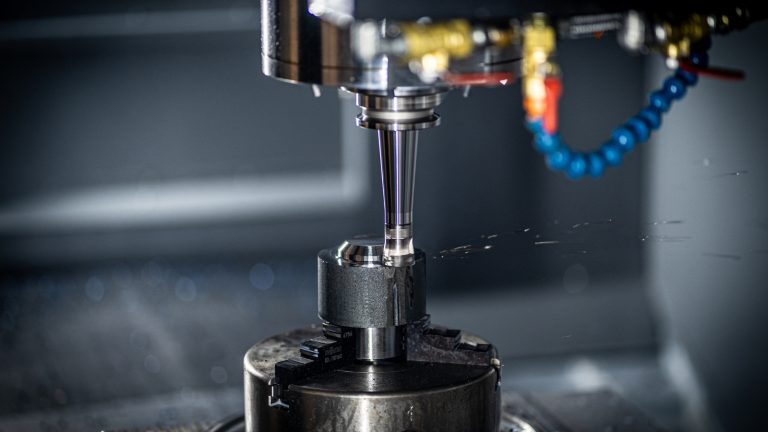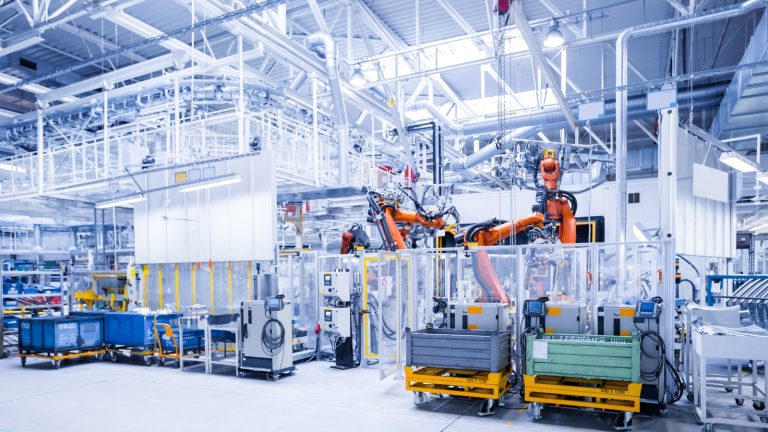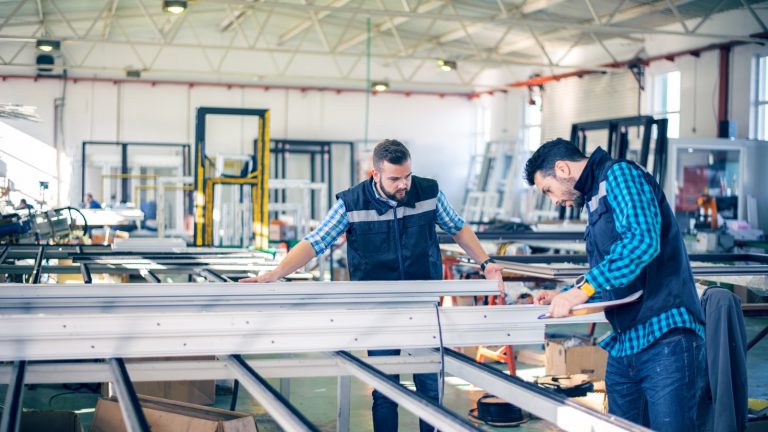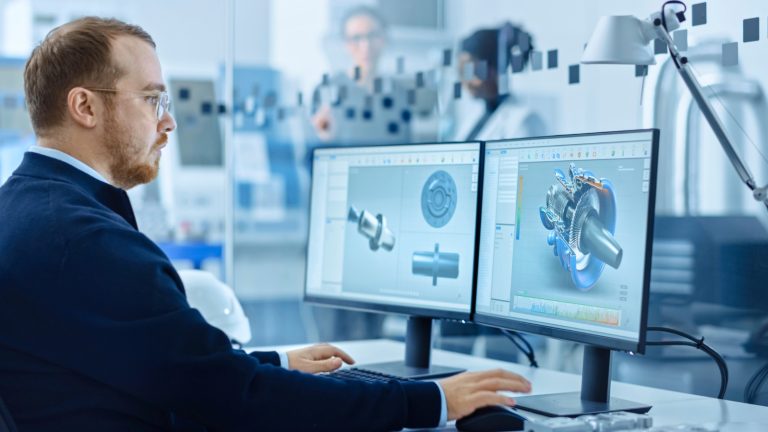Did you know that every piece of furniture you have, each car, each smartphone is a result of one complex set of manufacturing procedures? Behind every such item is an untold story of production, which can make a manufacturing business either reach the top level of success or drag it to the bottom layer. ‘Discrete Manufacturing’ is what can give such complicated production the attention it seeks.
In this article, we explore the discrete manufacturing, its characteristics and benefits.
What is the Meaning of Discrete Manufacturing?

- Discrete Manufacturing is the production mechanism or the manufacturing process of generating distinct and countable products such as computers, cars and furniture.
- How does this differ from other manufacturing processes? In continuous manufacturing, which is the most commonly used method, they create products like chemicals or liquids without counting them individually. When it comes to discrete manufacturing, it makes the items in a separate and identifiable way.
- Discrete manufacturing usually supports flexibility when making various models or different variations of a specific product and keep involving with assembling parts at workstations or assembly lines.
- This method also stands out as one of the best processes that focuses on quality control. Plus, it enhances material efficiency and inventory management. As other manufacturing types focus on making uniform productions in bulk without distinct units, discrete manufacturing opens the door for individually perceptible products.
Characteristics of Discrete Manufacturing

Production of Distinct Items
Formulating items like furniture, computers and cars, that can be counted separately, is the most highlighted characteristic of discrete manufacturing. Each product comes through the entire operational framework with unique and identifiable features. Unlike processes like continuous production, this process does not generate products that are uniform and continuously flowing. Instead that the latter concentrates on formulating individual and complete items.
Low to Medium Production Volume
In contrast to mass production, this type of manufacturing fabricates a smaller number of items. There are two options here: either the manufacturers can produce them one by one, or they can make them in batches. This quality is valuable for manufacturers when customising products according to customer expectations. This type of manufacturing does not typically flow with large-scale continuous production.
Use of Assembly Lines or Workstations
Manufacturers can build products step by step in discrete manufacturing. Workers or machines conduct distributed assembly operations within a modular production framework until the production sequence has concluded with a fully validated output. In the assembly lines, they get to organise work efficiently. It is easy to ensure that workers or machines have attached each component correctly. This process elevates the overall effectiveness of production quality and speed.
Flexible Production Process
Another outstanding characteristic of the latter is its ability to change easily to make different products or design variations. In the circumstances where the manufacturers are required to adjust the process to meet what their customers expect from them or introduce new models, this manufacturing type is beneficial. Due to its flexibility, it is straightforward to respond faster to changing market trends and keep the waste level lower on unused materials.
Inventory of Components
Storing raw materials or components until they are needed for the assembly is another feature of the latter. With everything in hand during production is a great way to boost efficiency, and it helps run operations smoothly without delays. Proper inventory management also ensures that materials are not wasted and that the right parts are available when required.
Benefits of Discrete Manufacturing

High Product Customisation
Discrete manufacturing empowers firms to undertake product development that meets individualised client specifications.
For example, the production floors have the potential to generate cars with different colours, features, or designs in accordance with consumer-driven preferences. This augments customer engagement and loyalty because they get exactly what they want.
Unlike mass production, where every item shares similar features, discrete manufacturing is at the top levels of flexibility when it comes to adjustability and making unique items.
Since the companies in today’s competitive market tend to present a variety of options to align with various customer demands, they find discrete manufacturing their ideal destination. It does not require massive changes to the production process.
Better Quality Control
In discrete manufacturing, manufacturing occurs at a unit-specific level, which enables thorough quality assessment of mistakes or defects.
If anomalies arise within the production process, they can be fixed ahead of final product handover to the customer. It diminishes the likelihood of faulty products being sold.
Due to its robust quality control mechanism, manufacturers receive the opportunity to ensure that every item meets the required standards. As the customers receive reliable goods, it leads to building trust in the company.
With phase-based inspections, manufacturers are able to maintain consistent quality, strengthen production processes, and stay away from losses that occur due to damaged or poor-quality goods.
Efficient Use of Materials
Discrete manufacturing incorporates exclusively the necessary elements and materials needed for the generation of singular products. Consequently, it implies that less waste compared against traditional manufacturing approaches that produce in bulk.
Manufacturers can permit allocation of resources in accurate proportions and retain items until required for production. Strategic deployment of resources also lowers costs and saves money.
When they are able to keep track of their materials properly, manufacturing companies obtain the ability to avoid shortages or overstocking.
This way, using materials efficiently, less waste flows into landfills, which will help with the sustainability goals of the company.
Flexibility in Production
This type of manufacturing leads the way for manufacturers to make shifts in their production without making it complex. Discrete manufacturing is where they can change the tracks of production from one product to another without making unnecessary delays or extra costs.
This feature shines bright in the circumstances where they face sudden customer demands or new models of the goods hit the market overnight. The production process can accommodate variations in goods like different designs, sizes, or features.
Flexible production also supports enterprise-level strategic responsiveness to consumer demand fluctuations. It obviates the risk of overproduction of goods that may not sell well.
Cerexio Solution to Achieve the Best of Discrete Manufacturing

Cerexio Industry 4.0-driven Manufacturing Execution System is the best tool for a manufacturing company that walks the path of discrete manufacturing in this fast-moving market. Our software solution is a collection of power-packed digital capabilities like AI, IoT, Digital Twin, and Predictive Analytics, which can drive your production efficiency to the top levels. No matter how many times you have to shift your production designs from one to the other, Cerexio MES will always keep track of standardisation.
Using Digital Support for Discrete Manufacturing Excellence

With constantly changing market demands and customer expectations, you may find it challenging to handle your production processes. With a little bit of digital support, you not only save time, money and resources, but hold tight to the promise of manufacturing excellence.
FAQ about Discrete Manufacturing
Discrete manufacturing is where the manufacturing companies get to formulate countable, individual products that they assemble from separate parts. Each finished good comes with its own structure, while being able to be disassembled.
Aeroplanes, automobiles, smartphones, furniture and goods that are easily identifiable and differ from each other as a result of discrete processes.
The best example of discrete manufacturing is always spotted in the automotive industry. They use separate elements to make cars and vans, and these are produced in factories across the globe. Once the auto manufacturer gets them through shipments, they can assemble them in their own production lines.
